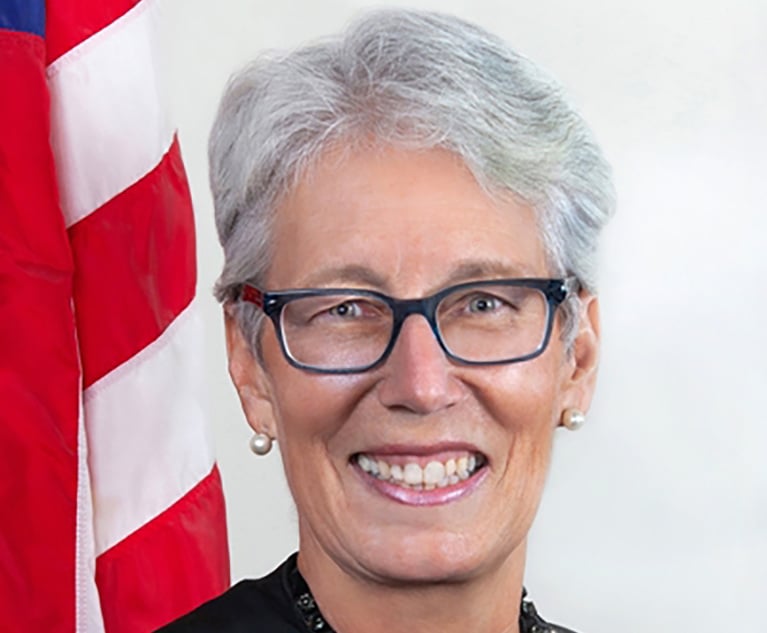Third Circuit Stands By Decision Striking Down Del. Party-Balance Requirement in Key Court Nominations
A three-judge Third Circuit panel denied a request by Delaware Gov. John Carney to have the case reheard by the court's full membership, instead opting to address a narrow issue his attorneys had raised on appeal.
April 10, 2019 at 05:26 PM
4 minute read
The original version of this story was published on Delaware Law Weekly

The U.S. Court of Appeals for the Third Circuit on Wednesday stood by an earlier opinion striking down as unconstitutional provisions of the Delaware Constitution that mandate political-party balance on key state courts.
A three-judge Third Circuit panel denied a request by Delaware Gov. John Carney to have the case reheard by the court's full membership, instead opting to address a narrow issue his attorneys had raised on appeal.
The one-page order kept intact the panel's key finding in February that the political balancing requirements, long a staple of the state's judicial nomination process, unconstitutionally prevented registered independents and third-party members from serving as judges.
That opinion, the first of its kind from the Third Circuit, held that judges do not qualify as policymakers to fit a narrow exception to the First Amendment, which allows party affiliation to be taken into account when considering applicants for certain governmental positions.
The ruling applied to Delaware's Supreme and Chancery courts, which both play an outsize role in developing American corporate law, as well as the Superior Court, whose memberships are required by law to be composed entirely of judges from the state's two dominant political parties. It did not apply to the Family Court or Court of Common Pleas.
Carney, who is responsible for nominating judges to Delaware state courts, petitioned the court for en banc review Feb. 18, arguing that the panel's ruling put the Third Circuit at odds with other jurisdictions and could have “profound implications” well beyond Delaware.
According to Wednesday's order, at least two Third Circuit judges voted for rehearing en banc, but the request was ultimately decided by the three judges originally assigned to the case. The panel—which included Judges Julio Fuentes, Theodore McKee and Luis Restrepo—issued only a revised opinion that addressed arguments Carney had made about whether the two main components of the party-balance requirement could be separated.
Carney had argued in his petition that the Third Circuit's ruling only nixed the so-called “major party” provision of the Delaware Constitution, which mandates that all members of the Supreme, Chancery and Superior courts belong to one of the two major political parties. It did not, however, declare unconstitutional another provision stating that no more than a “bare majority” of each of the three courts could be occupied by members of a single party.
David McBride, who represented Carney, argued therefore that only the unconstitutional part of the law should be stricken, while the bare majority provision be allowed to stand.
In a revised opinion, however, the panel held that both aspects were too intertwined for the bare majority requirement to stand by itself.
“Operating alone, the bare majority component could be interpreted to allow a governor to appoint a liberal member of the Green Party to a Supreme Court seat when there are already three liberal Democrats on that bench,” Fuentes wrote. “Only with the (unconstitutional) major political party component does the constitutional provision fulfill its purpose of preventing single party dominance while ensuring bipartisan representation.”
McBride, a partner with Young Conaway Stargatt & Taylor, did not comment on Wednesday's ruling, and a spokesman for Carney did not respond to a call requesting comment on the case or any plans to potentially appeal the ruling to the U.S. Supreme Court.
David Finger, who represented plaintiff James Adams, said the issue was correctly decided.
“Of course, we're happy that the Third Circuit reaffirmed its earlier ruling,” said Finger, a partner with Finger & Slanina.
This content has been archived. It is available through our partners, LexisNexis® and Bloomberg Law.
To view this content, please continue to their sites.
Not a Lexis Subscriber?
Subscribe Now
Not a Bloomberg Law Subscriber?
Subscribe Now
NOT FOR REPRINT
© 2025 ALM Global, LLC, All Rights Reserved. Request academic re-use from www.copyright.com. All other uses, submit a request to [email protected]. For more information visit Asset & Logo Licensing.
You Might Like
View All
Attorneys, Professors Share Support for Chancellor Following Musk's Online Attacks
4 minute read

Jurden Announces 2025 Retirement, Capping 24 Years on Superior Court
3 minute read
Trending Stories
- 1Exits Leave American Airlines, SiriusXM, Spotify Searching for New Legal Chiefs
- 2Etsy App Infringes on Storage, Retrieval Patents, New Suit Claims
- 3The Secret Prior Art Problem Rears Its Ugly Head
- 4Four Things to Know About Florida’s New Law to Protect Minors Online
- 5US Supreme Court Considers Further Narrowing of Federal Fraud Statutes
Who Got The Work
J. Brugh Lower of Gibbons has entered an appearance for industrial equipment supplier Devco Corporation in a pending trademark infringement lawsuit. The suit, accusing the defendant of selling knock-off Graco products, was filed Dec. 18 in New Jersey District Court by Rivkin Radler on behalf of Graco Inc. and Graco Minnesota. The case, assigned to U.S. District Judge Zahid N. Quraishi, is 3:24-cv-11294, Graco Inc. et al v. Devco Corporation.
Who Got The Work
Rebecca Maller-Stein and Kent A. Yalowitz of Arnold & Porter Kaye Scholer have entered their appearances for Hanaco Venture Capital and its executives, Lior Prosor and David Frankel, in a pending securities lawsuit. The action, filed on Dec. 24 in New York Southern District Court by Zell, Aron & Co. on behalf of Goldeneye Advisors, accuses the defendants of negligently and fraudulently managing the plaintiff's $1 million investment. The case, assigned to U.S. District Judge Vernon S. Broderick, is 1:24-cv-09918, Goldeneye Advisors, LLC v. Hanaco Venture Capital, Ltd. et al.
Who Got The Work
Attorneys from A&O Shearman has stepped in as defense counsel for Toronto-Dominion Bank and other defendants in a pending securities class action. The suit, filed Dec. 11 in New York Southern District Court by Bleichmar Fonti & Auld, accuses the defendants of concealing the bank's 'pervasive' deficiencies in regards to its compliance with the Bank Secrecy Act and the quality of its anti-money laundering controls. The case, assigned to U.S. District Judge Arun Subramanian, is 1:24-cv-09445, Gonzalez v. The Toronto-Dominion Bank et al.
Who Got The Work
Crown Castle International, a Pennsylvania company providing shared communications infrastructure, has turned to Luke D. Wolf of Gordon Rees Scully Mansukhani to fend off a pending breach-of-contract lawsuit. The court action, filed Nov. 25 in Michigan Eastern District Court by Hooper Hathaway PC on behalf of The Town Residences LLC, accuses Crown Castle of failing to transfer approximately $30,000 in utility payments from T-Mobile in breach of a roof-top lease and assignment agreement. The case, assigned to U.S. District Judge Susan K. Declercq, is 2:24-cv-13131, The Town Residences LLC v. T-Mobile US, Inc. et al.
Who Got The Work
Wilfred P. Coronato and Daniel M. Schwartz of McCarter & English have stepped in as defense counsel to Electrolux Home Products Inc. in a pending product liability lawsuit. The court action, filed Nov. 26 in New York Eastern District Court by Poulos Lopiccolo PC and Nagel Rice LLP on behalf of David Stern, alleges that the defendant's refrigerators’ drawers and shelving repeatedly break and fall apart within months after purchase. The case, assigned to U.S. District Judge Joan M. Azrack, is 2:24-cv-08204, Stern v. Electrolux Home Products, Inc.
Featured Firms
Law Offices of Gary Martin Hays & Associates, P.C.
(470) 294-1674
Law Offices of Mark E. Salomone
(857) 444-6468
Smith & Hassler
(713) 739-1250






